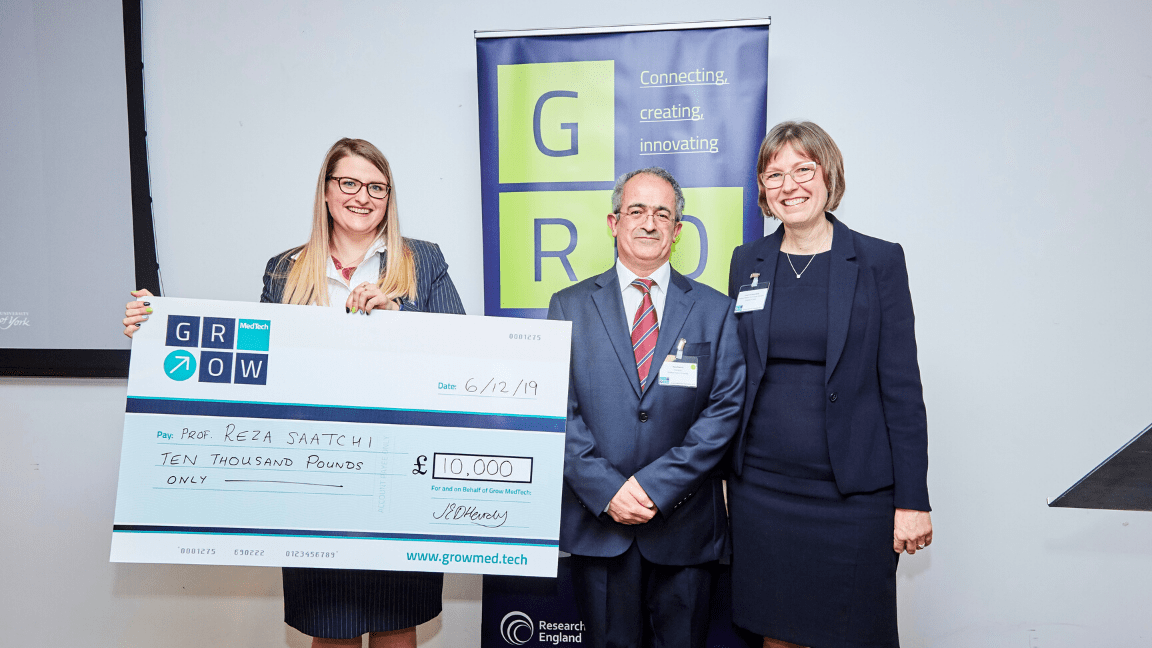Dragons’ Den success for sleep apnoea experts from Sheffield Hallam University and Sheffield Children’s Hospital
A team of academics and clinicians from Sheffield Hallam University (SHU) and Sheffield Children’s Hospital (SCH) triumphed in a Dragons’ Den-style pitch competition to win £10,000 of medical technology funding.
The money will be used to advance the development of a device that utilises innovative method to monitor central sleep apnoea in young children and infants.
Led by medical engineer Professor Reza Saatchi, the project team comprised of Professor Heather Elphick, Dr Ruth Kingshott and Dr Nicki Barker from SCH, alongside Dr Ruth Evans and Anthony Jones from SHU.
The team impressed Grow MedTech’s panel of independent dragons with their plans for technology that can help clinicians to monitor the respiratory condition in children and infants.
Central sleep apnoea, which affects around 1% of all infants, is a type of breathing disorder that occurs during sleep and causes individuals to pause their breathing. These incidents can be serious enough to require hospital admission.
Reza Saatchi, Professor of Electronics at SHU, said: “We are delighted to have won the prestigious Grow MedTech Pump Prime competition. There is currently a clinical need for a reliable and cost-effective device that allows home monitoring of infants and children with central sleep apnoea, and it is testament to the strength of our 15-year research and innovation partnership with Sheffield Children’s Hospital that we have succeeded in winning this highly competitive research prize which allows us to meet this important medical need.”
The competition was part of Growing MedTech Translation 2019, a Leeds-based event hosted by Grow MedTech. The event brought together more than 100 delegates from the medtech sector to hear talks from innovators and to network.
Alongside the dragons – made up of medtech experts and patient representatives – delegates at the conference were able to vote for their favourite research innovation, for which the SHU/SCH team also came out on top.
The £10,000 Pump Prime funding and innovation support is to be used to de-risk and advance the development of the technology towards commercialisation and being used by patients. There are currently needs for a device that can be used to achieve accurate, reliable, easy to use, child-friendly and cost-effective home monitoring of central sleep apnoea.
The SHU/SCH project focuses on the paediatric population, but the technology is equally applicable to adults and can reduce NHS costs by monitoring patients at home to allow more timely detection and treatment.

